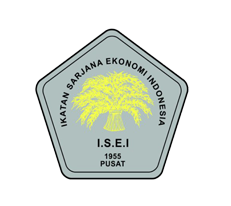The Conceptualizing Learning Agility of University Students in the COVID-19 Era
https://doi.org/10.34308/eqien.v12i04.1540
Keywords:
goal orientation, learning agility, SEMAbstract
COVID–19 caused schools and universities to change their regular program to online learning. Online learning requires the student to be agile and engaged in the learning process. This paper investigated the impact of goal orientation, openness to experience, and psychological safety toward learning agility on university students. This research used PLS–SEM to analyze the relationships among learning agility constructs. The author conducted quantitative research by developing an online survey using questionnaires from the previously widely used and well–validated instrument. The participants of this study are 206 industrial engineering students of Telkom University, Indonesia. The instrument was fulfilled to what extent the participant agreed with the statement using a six–point Likert scale. A significant relationship was found between learning agility factors: goal orientation, openness to experience, and psychological safety toward learning agility. It was found that goal orientation has a large effect size on learning agility. Thus, it played a central role in the model. Future studies should be conducted with a larger sample with several individual attributes. It may determine whether individual attributes predict difference variation of learning agility. The differences could be examined by making group–specific comparisons.










